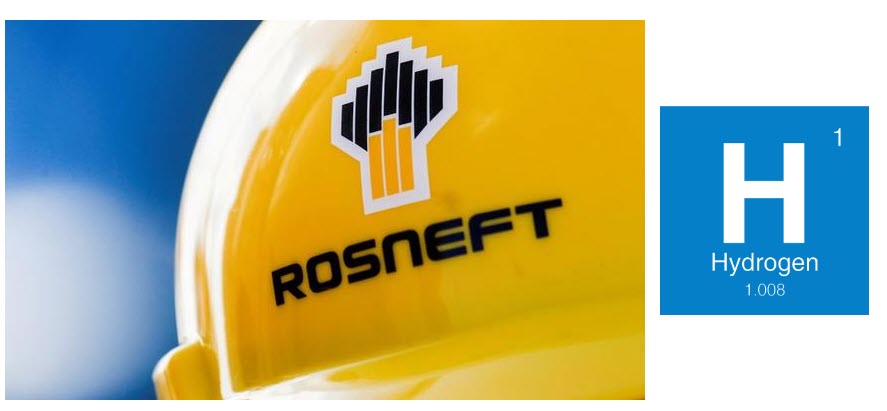
By the end of 2020, the volume of hydrogen production at Rosneft’s facilities, including foreign assets, was about 400,000 tonnes. Hydrogen is produced for the Company’s in-house refineries, which eliminates commercial risks.
Rosneft has become the first Russian company to present a 2035 carbon management plan. As part of the plan, the Company seeks to reduce the emission intensity of its oil and gas production by 30%, achieve a methane emission intensity below 0.25% and avert greenhouse gas emissions of 20 million tonnes of carbon dioxide equivalent. In addition, Rosneft is exploring options to minimise its carbon footprint in hydrogen production. There are now hydrogen production units at almost all of the Company’s refineries.
As part of its 2035 carbon management plan, Rosneft will consider using carbon capture, recovery and storage (CCS/CCUS) technologies at its existing hydrogen facilities. These technologies will significantly reduce emissions and enable the transition to blue hydrogen production.
Refineries need hydrogen for hydrogenation catalytic processes to produce fuels with green Euro 5 specifications. Hydrogen is produced from natural gas by high temperatures, a catalyst and water vapour. If natural gas is not available, liquefied petroleum gases and straight-run gasoline are used as feedstocks. A secondary source of hydrogen at the refinery is the catalytic reforming of straight-run gasoline fractions, designed to increase the octane number of gasoline. In the gasoline reforming process, hydrogen is obtained as a by-product of the hydrocarbon aromatisation process (about 2% by weight of the feedstock processed in catalytic reforming). The hydrogen generated in this way is fully utilised in other processes.
Rosneft Oil Company and BP signed a cooperation agreement on carbon management and sustainable development in February 2021. The agreement includes a joint study of the prospects for new projects using renewable energy sources as well as CO2 capture, recovery and storage (CCUS) technologies.
Read the most up to date Fuel Cell and Hydrogen Industry news at FuelCellsWorks




